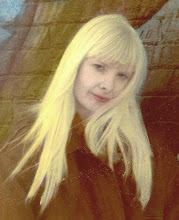
1950s fame and later career
Silvers became a household name in 1955 when he starred as Sergeant Ernest G. Bilko in You'll Never Get Rich, later retitled The Phil Silvers Show. The military comedy became a huge television hit, with the opportunistic Bilko fast-talking his way through one obstacle after another. Most episodes of the series were filmed in New York. The series ceased production in 1959, not owing to any decline in popularity, but because of the high production costs of a show with a huge ensemble cast.
Throughout the 1960s he appeared internationally in films such as It's a Mad, Mad, Mad, Mad World and 40 Pounds of Trouble. He was featured in Marilyn Monroe's last film, the unfinished Something's Got to Give. In the 1963-1964 television season, he appeared as Harry Grafton, a factory foreman interested in get-rich-quick schemes, much like the previous Bilko character, in CBS's 30-episode The New Phil Silvers Show, with co-stars Stafford Repp, Herbie Faye, Buddy Lester, Elena Verdugo as his sister, Audrey, and her children, played by Ronnie Dapo and Sandy Descher. In 1967 he starred as a guest in one of the British Carry On films, Follow That Camel, a Foreign Legion parody in which he played a variation of the Sergeant Nooker character. Producer Peter Rogers employed him to ensure the Carry On films' success in America. His salary was £30,000, the largest Carry On salary ever, only later met by the appearance of Elke Sommer in Carry On Behind. Silvers' presence did not ensure the film's success on either side of the Atlantic.
Silvers was offered the leading role of conniving Roman slave Pseudolus in the Broadway musical comedy A Funny Thing Happened on the Way to the Forum. Silvers declined, and the role went instead to Zero Mostel, who was so successful in the role that he repeated the role in the 1966 film version. By this time Silvers realized his error, and agreed to appear in the film as a secondary character, flesh merchant Marcus Lycus. When actor-producer Larry Blyden mounted a Broadway revival of Forum in 1972, he wanted Phil Silvers to play the lead, and this time Silvers agreed. The revival was a big hit and Silvers became the first actor ever to win a Tony Award in a revival of a show.
Silvers also guested on The Beverly Hillbillies, and various TV variety shows such as The Carol Burnett Show, Rowan & Martin's Laugh-In, and The Dean Martin Show. Perhaps Silvers' most memorable guest appearance was as curmudgeonly Hollywood producer Harold Hecuba in an episode (titled "The Producer") of Gilligan's Island, where the he and the castaways performed a musical version of Hamlet (Silvers's production company Gladasya - named after his catchphrase "Gladdaseeya!" - financed the show).
Illness and death
In 1972, Silvers suffered a stroke from which he never fully recovered. Despite his poor health, he continued working into the early 1980s including an appearance on Fantasy Island as an old comic trying to reunite with his old partner, and on Happy Days as the father of "Jenny Piccolo" (played by his real-life daughter Cathy Silvers). A frail Silvers, interviewed before his death, revealed one of his secrets: "I’m an impatient comedian. And I feel the audience is as impatient as me."
Silvers died on November 1, 1985 in Century City, California at the age of 74. The cause of death was a heart attack. He was interred at Mount Sinai Memorial Park Cemetery in Los Angeles, California.
Personal life
Silvers was as compulsive a gambler in real life as his legendary comic character Sgt. Bilko. He suffered from depression on and off over the years. His memoirs were titled This Laugh Is On Me.
While staying in Reno, Nevada, in the 1950's, he would often gamble all night. After heading over Mt. Rose to Lake Tahoe one evening, Silvers came in and “took over” the crap game at the tiny Cal-Vega Lodge. Starting with a $50 buy in, he told one-liners and began to really enjoy himself. Gambling was “bigger than life” for Phil, and soon so were his bets. The club had a $200 maximum per number at craps, but the dice stayed hot and Silvers filled the rail around himself with chips. When the dice got cold, the chips began disappearing. That didn’t matter to the players as Silvers continued to tell jokes and generally “harass” the dealers. Unfortunately, as often happened, his luck stayed bad.
Soon the rails were empty and so was Silvers’ wallet. He asked for credit and went through another $1,000. At that point a taxi was called and he was taken back to Reno. It was “One of the worst nights of my life”, said Silvers to the driver, then added, “Don’t wait for any lights and don’t wait for any tip, I left it at the Cal Vega.”
Both Silvers' marriages ended in divorce. He had five daughters, all by his second wife.

No comments:
Post a Comment